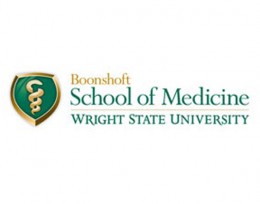 Jon Hamilton, a science correspondent at NPR, will teach a Wright State University graduate level course this summer in how to communicate scientific information in a way that is brief, clear, engaging and fun.
Jon Hamilton, a science correspondent at NPR, will teach a Wright State University graduate level course this summer in how to communicate scientific information in a way that is brief, clear, engaging and fun.
This is the fourth year that Hamilton will teach the WSU web-based course, Communications in Science. Hamilton, who loves science but hates jargon, was part of NPR’s team of science reporters and editors who went to Japan in 2011 to cover the crisis at the Fukushima Dai-ichi nuclear power plant after the earthquake and tsunami.
In his job at NPR, he talks to scientists every day. While almost all of them have something interesting and important to say, he says many of them have trouble conveying what they know in a way that the average NPR listener can understand.
“I decided it would be fun to teach a class in how to communicate science effectively. Of course, not everyone in the course is a scientist,” said Hamilton, who received the Michael E. DeBakey Journalism Award in 2009 for his piece on the neuroscience behind treating autism. “I’ve had educators, journalists and just plain curious people take the class and love it. But what my students have in common is an interest in science and a desire to convey scientific information to others in a way that’s entertaining, clear and informative.”
Hamilton also expressed concern about people and elected officials who don’t understand the basics of important scientific issues like climate change, environmental toxins and evolutionary biology.
“That’s led to a lot of bad decisions, like not vaccinating children for deadly diseases or ignoring the sea level rise until a storm puts Lower Manhattan under water,” said Hamilton, who agreed to teach the summer course after spending three days in 2010 on the WSU campus for a story he was working on for NPR, previously known as National Public Radio. The story focused on Lisa Daxer, a WSU biomedical engineering major who has autism.
“If journalists, educators and scientists did a better job communicating scientific ideas, we could make better decisions in the future,” Hamilton said.
For more information about the class, call Stacy Hendry, B.S., at (937) 775-4091.

 Cosmic collection
Cosmic collection  Wright State revives student-faculty collaborative writing journal
Wright State revives student-faculty collaborative writing journal  Fulfilling dreams
Fulfilling dreams  Wright State alumna Nicole Scherzinger wins top British theatre award as star of ‘Sunset Boulevard’
Wright State alumna Nicole Scherzinger wins top British theatre award as star of ‘Sunset Boulevard’  Healthy competition
Healthy competition 